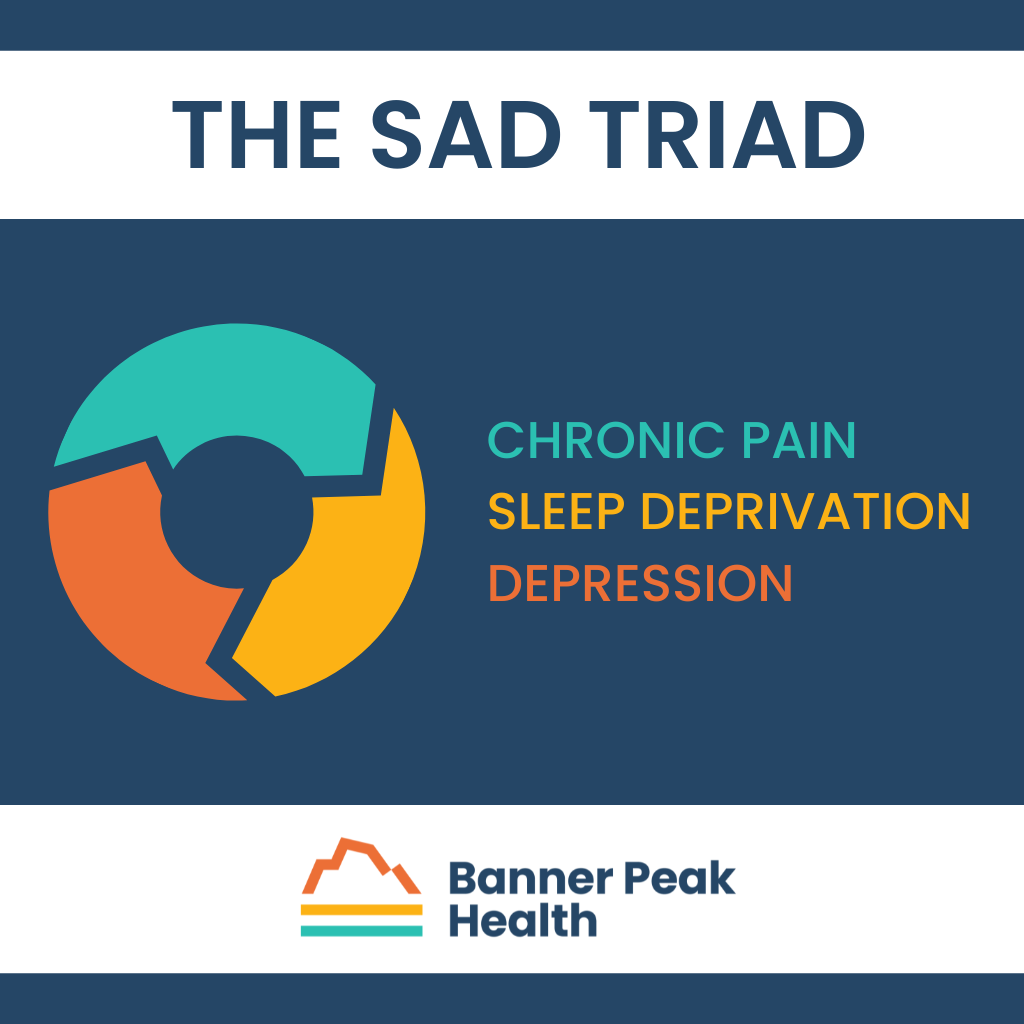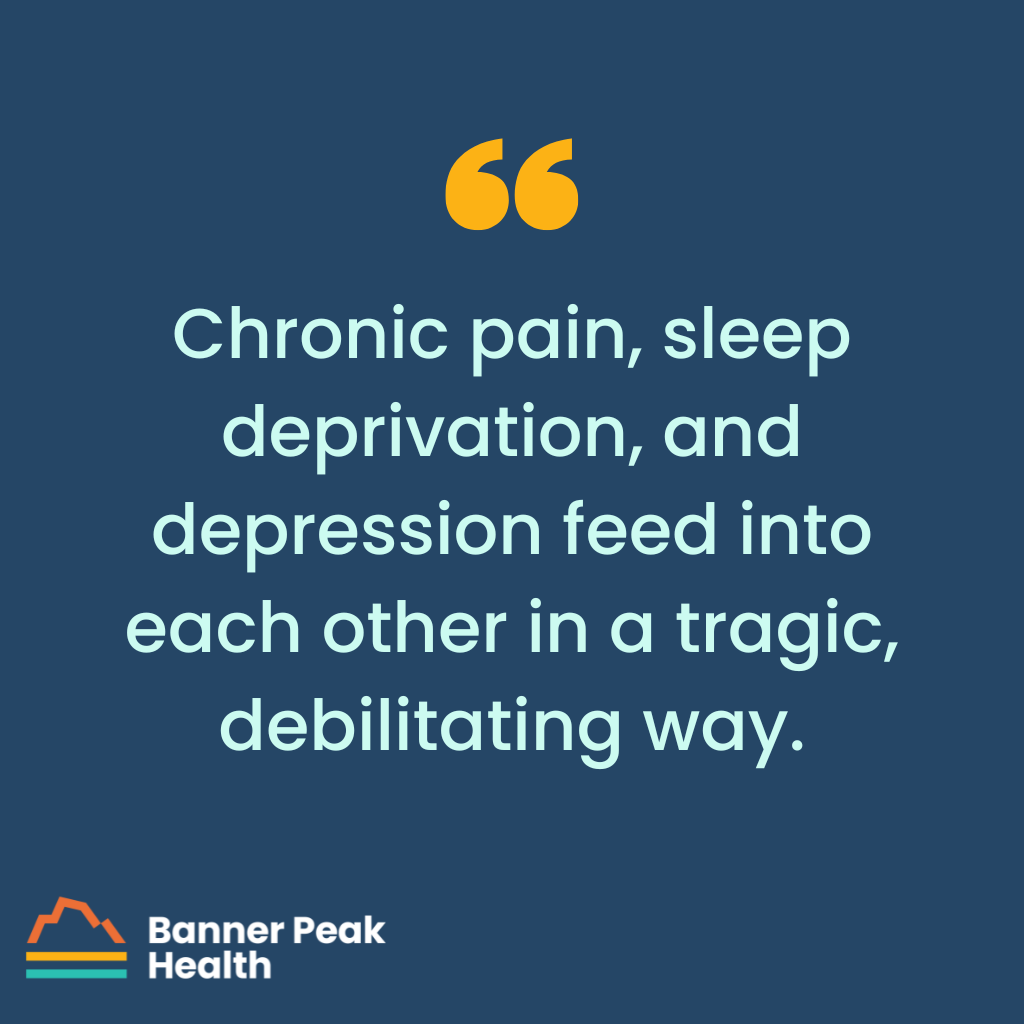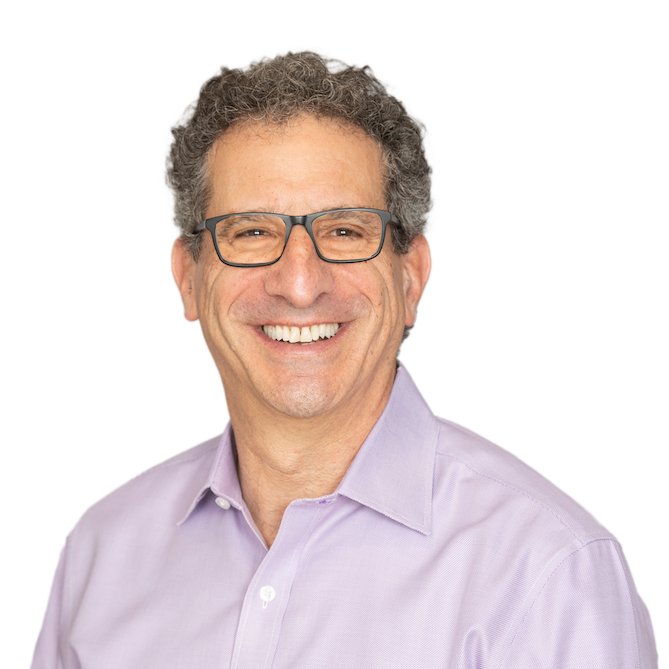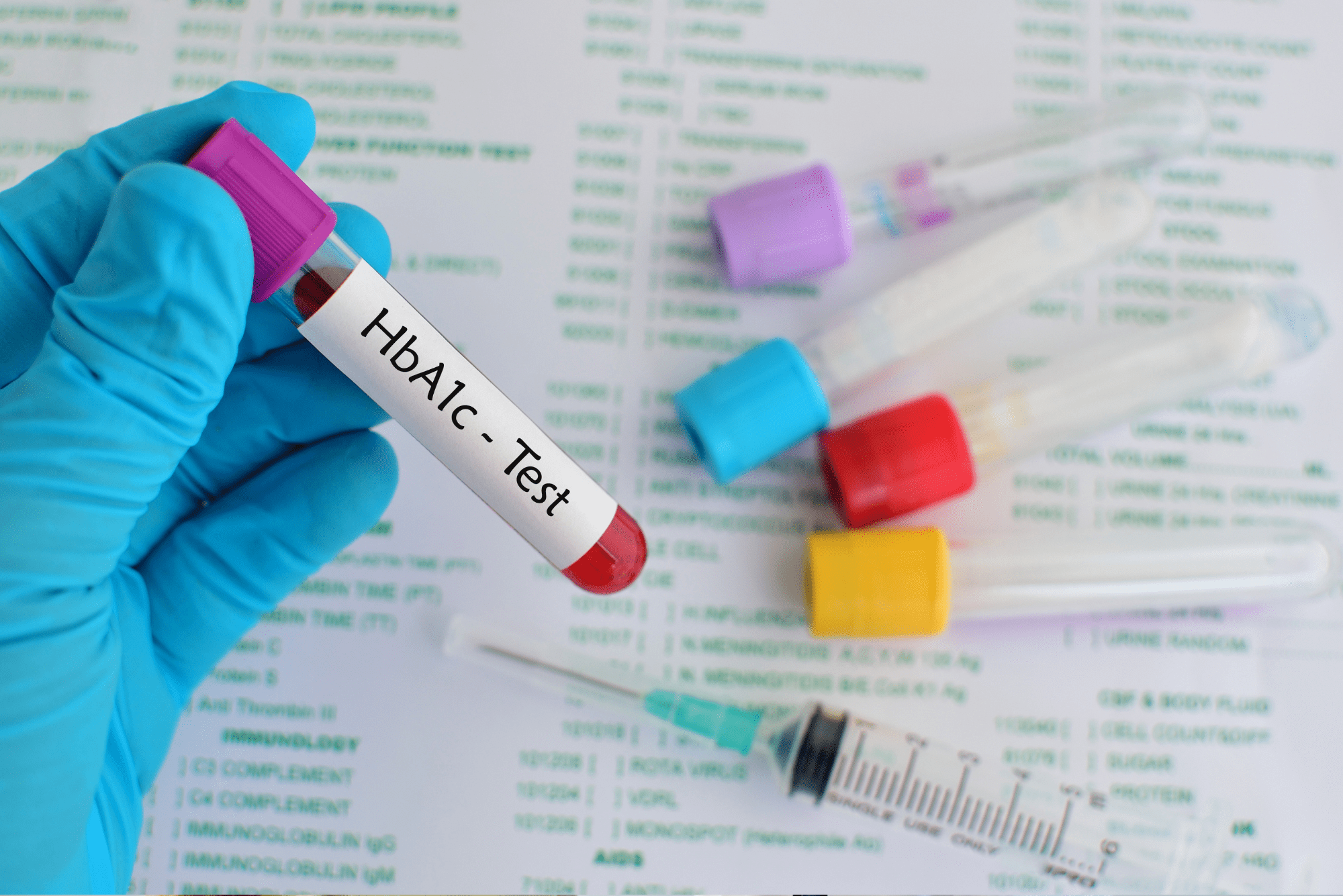For about 15 years, I studied Chinese medicine and practiced acupuncture. As such, I have a deep appreciation for the Eastern perspective on medicine, health, and wellness.
In Western medicine, we tend to sort everything into conceptual silos: “This is a neurological disease, so you have to see a neurologist.” “This is an endocrine disease, so you have to see an endocrinologist.” Cognitively, we’re splitters.
But in Eastern medicine, everything is inextricably linked, which leads to a lot of powerful explanation.
With that in mind, I’d like to introduce “the sad triad” — the link between depression, sleep deprivation, and chronic pain.

The Sad Triad
1. Chronic Pain
One of the most challenging aspects of any medical system is treating pain, especially chronic pain.
At first glance, many perceive the transmission of pain as linear, like the child’s game of tying two cans together with a string to transmit a signal between them.
However, the transmission and sensation of pain are much more complex. A more apt metaphor would be that of a spiderweb: a myriad of interlocking nodes in which modulating any one node changes what happens to all the other ones.
This is why I believe the Eastern view of interconnectedness is a more useful, more explanatory way to address chronic pain.
Pain’s impact on the body isn’t linear. It’s influenced by many other factors — especially the quality and quantity of sleep we get.
2. Sleep Deprivation
Being an adult often means masking our true selves for the sake of social acceptance. We sometimes get a clearer view of human nature by observing children.
For example, a toddler who’s well-rested and enjoying herself at the playground may trip and face-plant while running across the turf. While this will probably draw a shriek from the parents watching, she’ll cheerfully get back up, brush herself off, and keep running toward the next play structure.
However, anyone who’s tried to put an exhausted toddler to bed knows a barely-pinched toe can lead to a hysterical tantrum.
That’s a great illustration of how sleep influences the perception and impact of our pain. Ultimately, poor sleep is a pain multiplier.
3. Depression
The emotional context around pain also influences the pain’s impact.
Although there are no perfect analogies, the example I’ll use here is of two very similar anatomical injuries I’ve treated in two very different contexts.
The first injury occurred when a snowboarder was going for big air and blew it. He jammed his neck and weathered chronic neck pain as a result.
The other injury was the result of a car accident. A woman was rear-ended driving home from work. Because of her injuries, she also suffered chronic neck pain.
Although the two injuries aren’t anatomically very different, the perceived pain is. The snowboarder has much less perceived pain because he had agency over his situation. He himself made the decisions that led to the injury. The woman in the car accident, meanwhile, has much more perceived pain because she felt victimized by her circumstances.
Our emotions interpret pain — they influence how we experience our pain and how it impacts our lives.
A Vicious Cycle
These three realities — chronic pain, sleep deprivation, and depression — feed into each other in a tragic, debilitating way.
If pain is unrelenting and interferes with sleep, the pain becomes more perceived and more impactful. If you’re exhausted and not sleeping, you’re at risk of depression. The cycle continues.
If you’re caught in that cycle, a Western physician will likely diagnose you with chronic pain, then with sleep deprivation, then with depression. Each condition will be treated separately rather than as a whole.
Holistic Treatment
Now that we understand how these conditions are related, we can use this interrelatedness to our advantage. We can turn the vicious cycle of the sad triad into a virtuous cycle.
For example, some of our most potent chronic pain medications are also used as antidepressants. We believe these medications manipulate anti-pain properties through the same neural pathways an antidepressant would use.
I’m a minimalist when it comes to medication, but when a patient tells me their pain is affecting their sleep, I become pharmacologically aggressive. In that case, the benefits of medication far outweigh the risks.
On that note, if you yourself are caught by the sad triad and need help turning that vicious cycle into a virtuous cycle, Banner Peak Health is just a call or click away.

Today’s Takeaways
- Pain severe enough to disturb sleep warrants treatment.
- Hidden depression can present as chronic pain.
- People with chronic pain often categorize good days and bad days based on their symptoms. I posit that a bad day often correlates with not having gotten enough sleep the night before. Paying more attention to sleep may lead to more good days.
- Taking an antidepressant to address chronic pain does not dismiss the physical reality of the pain. In no way am I trying to tell you your pain is “just in your head.”
- Mindfulness/stress reduction classes are an effective means of pain relief. If you can achieve control through mindfulness, you can control your pain relief.
- Physical exercise can also be a wonderful treatment option for the entire sad triad.

Barry Rotman, MD
For over 30 years in medicine, Dr. Rotman has dedicated himself to excellence. With patients’ health as his top priority, he opened his own concierge medical practice in 2007 to practice medicine in a way that lets him truly serve their best interests.



